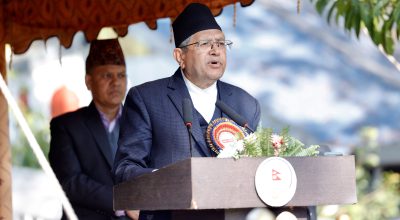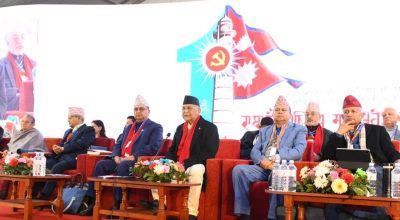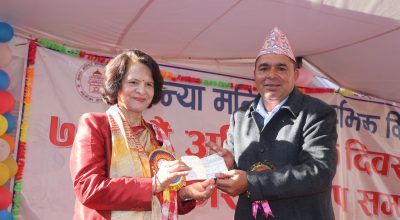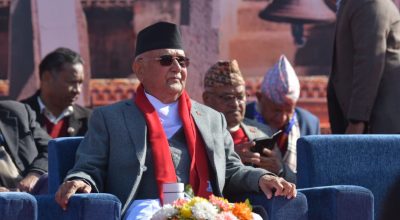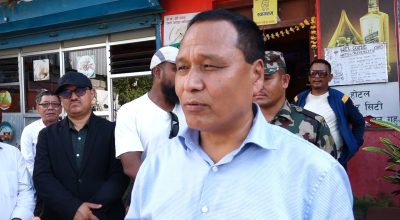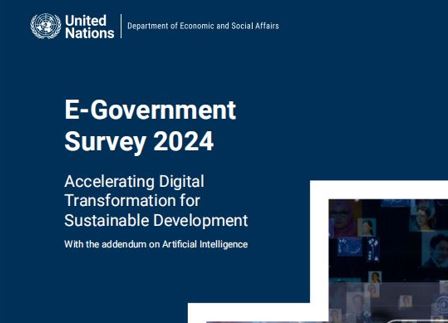
Narayan Ghimire
Kathmandu, Sept 25: Digital transformation has been prioritized by all countries across the world to realize the sustainable development goals (SDGs). As the SDGs deadline of 2030 approaches near, the status of the digital transformation is however unequal among the UN member states.
Irrespective of the persisting digital divide, creating a fear of further expansion, a UN report has shown a rise in e-government development with the countries’ launch and expansion of strategies, policies, governance initiatives and increased investments in e-governance.
The biennial publication of the UN Department of Economic and Social Affairs released a week back brings the facts and makes meticulous assessments of the digital status through the lens of the E-Government Development Index (EGDI) and the Local Online Services Index (LOSI) of all UN member states.
The ‘E-Government Survey 2024: Accelerating Digital Transformation for Sustainable Development’ has also incorporated a special supplement with one of the defining issues of our time- Artificial Intelligence (AI).
“The development of digital government has seen a significant upward trend worldwide, with all regions leveraging technology to enhance government services and improve people’s engagement. This shift has accelerated during the post-pandemic recovery period, with increased investment in resilient infrastructure and cutting-edge solutions such as cloud computing and broadband,” reads the report.
The speedy digitalization, adoption of remote work, AI integration in services, emphasis on digital identity and data management, and rise of data and emerging technologies at the policymaking level are major global megatrends as per the survey report.
The survey also featured a dominant issue- AI that has influenced government works significantly by creating both opportunities and challenges. It has suggested the need for bridging the widening gaps on the adoption and expansion of modern technology to ensure justice for all.
The survey report is divided into five chapters: a digital government model framework for sustainable development; global trends in e-government; regional e-government development and the performance of country groupings; local e-government development; and an addendum on AI and digital government.
The digital divide is a nagging issue before the development, according to the report. To this, Under-Secretary-General for Economic and Social Affairs, United Nations, LI Junhua, observed, “The survey underscores that the digital divide remains a significant challenge, particularly in developing regions like Africa and Oceania and for countries in special situations. Disparities in access and capacity continue to threaten progress toward the 2030 Agenda.”
He underlined the need for intensifying initiatives and innovative works to minimize the gaps, which, Junhua argued, may not be bridged by 2030 irrespective of the positive developments and projections.
The UN E-Government Survey was prepared by the United Nations Department of Economic and Social Affairs of the (UN DESA), through its Division for Public Institutions and Digital Government (DPIDG).
The Global E-Government Survey has been continued for two decades with biennial publications.
The EGDI components are online services index, telecommunications infrastructure index and the human capital index; while LOSI has the components as institutional framework, services provision, content provision, technology, e-participation and e-government literacy.
Nepal improves score, registered as one among LDCs in leading digital development
To a positive remark, Nepal has made a significant stride in digital adoption since 2022.
The report stated, “Among the LDCs, Bangladesh, Bhutan, Rwanda, Nepal, Cambodia, and Zambia have been leading digital development since 2022, and Senegal and Myanmar have joined these high performers in 2024.”
Nepal is listed as one among twenty-five countries categorized as the middle OSI group. Some of them in this category are Algeria, Antigua and Barbuda, Botswana and Cambodia.
Despite this, Nepal is still behind many countries. Globally, among total UN member states, Nepal stands at 119 with an EGDI score of 0.5781.
Meanwhile, the list of countries at the top of EGDI rankings are Denmark, Estonia, Singapore, Iceland, the Republic of Korea, and Saudi Arabia. They have displayed robust digital leadership as per the report.
Similarly, India’s global rank in EGDI is 97, China’s 35, Bangladesh’s 100, and Bhutan’s 103.
In the global ranking of EGDI Report, 2022, Nepal had stood at 125. #nepal #EGDI #Digital #governance







